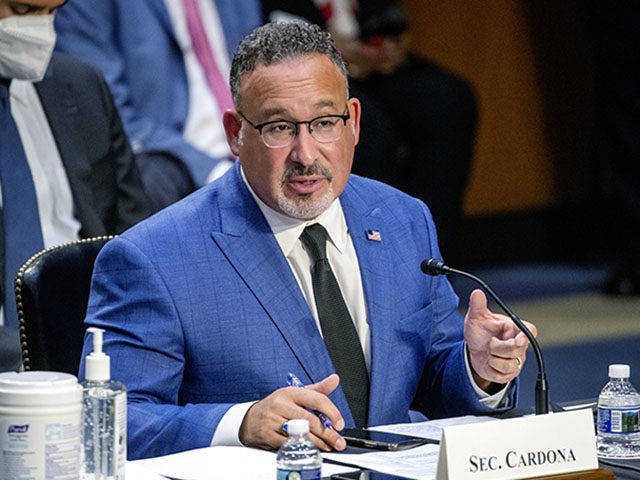The U.S. Department of Education issued a $1.5 million extension to a critical race theory training program for Historically Black Colleges and Universities (HBCU).
The Research Institute for Scholars of Equity (RISE) program was initiated by the Obama administration in 2016 under the Institute of Education Sciences with a $1,116,895 grant for five years. The program’s theme was to “[focus] on the ongoing inequities in education found in American schooling, especially for preK-20 African American and Latino/a students.” The grant was awarded to North Carolina Central University (NCCU).
“One core feature of the fellowship,” the 2016 grant reads, “is the eight-week summer research institute in which fellows will be introduced to critical race theory (as well as mixed-methods research techniques) as a means of studying issues such as teacher quality, education policy, and race and social justice in education.” [Emphasis added].
The grant’s renewal, which was set at $1,533,384 for five years, has stripped the phrase “critical race theory” from its description but appears to be an extension of the same 2016 program.
Indeed, the 2021–2026 renewal’s wording appears to be watered down, as critical race theory has become a major political issue for Democrats and the Biden administration — culminating in Attorney General Merrick Garland calling on the FBI to track parents opposed to the ideology and using “counterterrorism tools” to achieve that end.
“One core feature of the fellowship,” reads the same portion of the grant extension referenced above, “is the 8-week summer research institute in which fellows will be introduced to mixed-methods research techniques as a means of studying issues such as teacher quality, education policy, and race and social justice in education.” [Emphasis added].
Moreover, despite the Education Department’s removal of the term “critical race theory,” at present, NCCU’s RISE webpage still says, “Its core feature consists of an eight-week summer research institute that introduces critical race theory to mixed-methods research techniques and study issues including teacher quality, education policy, race and social justice in education.” [Emphasis added].
The new grant does include a new sentence, however, that may surreptitiously refer to critical race theory, which reads, “During this institute, fellows study the sociocultural contexts of American schooling and learn how to formulate culturally competent research questions.” Though the phrasing is not exact, the term “culturally responsive teaching” has been used by school districts across the country to camouflage their usage of critical race theory — both of which use the acronym CRT.
Some scholars such as Laura S. Abrams and Jené A. Moio argue, however, that the “cultural competence model is largely ineffective and that its tendency to equalize oppressions under a ‘multicultural umbrella’ unintentionally promotes a color-blind mentality that eclipses the significance of institutionalized racism.” Critical race theory, which requires its practitioners to view nearly all human interaction through a lens of racism, “can be used to address some of these noted problems with the cultural competence model,” according to Abrams and Moio.
NCCU’s 2017, 2018, 2019, 2020, and 2021 flyers for the RISE program do not mention “critical race theory” but do mention “equity.”
The RISE 2.0 program will offer one-year fellowships to up to 58 students over the course of its five-year renewal.
The U.S. Department of Education did not respond to a request for comment from Breitbart News.

COMMENTS
Please let us know if you're having issues with commenting.